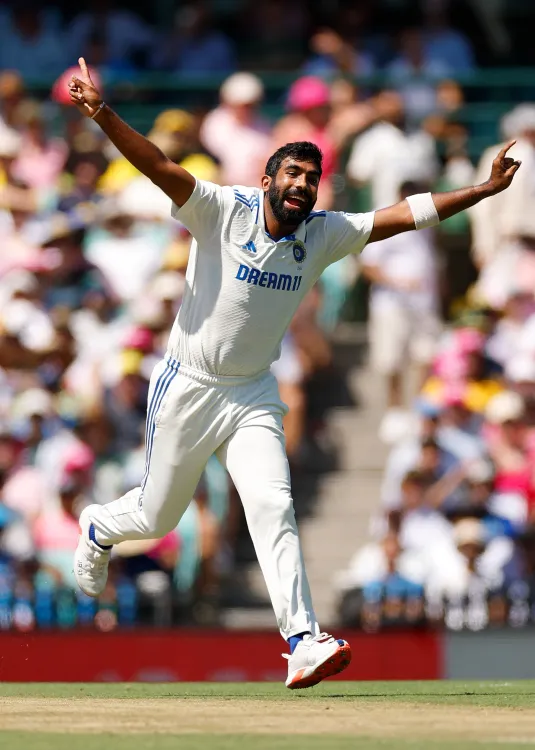Why Did Bumrah Decline the Test Captaincy?

Synopsis
Key Takeaways
- Bumrah prioritizes team welfare over personal ambitions.
- Long-term fitness is crucial for consistent performance.
- Leadership should not compromise a player’s health.
- Shubman Gill is the new Test captain.
- Selfless decisions benefit the team as a whole.
New Delhi, June 17 (NationPress) India’s premier pace bowler Jasprit Bumrah has openly discussed his decision to decline the chance to become India’s next Test captain, despite being a top contender for the position. In a discussion with Dinesh Karthik for SKY Sports, Bumrah shared that the Ajit Agarkar-led selection committee had earmarked him as their favored choice to take over from Rohit Sharma as the red-ball captain. However, the talented fast bowler decided against it, citing concerns related to workload management and long-term fitness.
“Before the unexpected retirements of Rohit and Virat during the IPL, I had consulted with the BCCI regarding my workloads for an upcoming five-Test series,” Bumrah mentioned, referring to the surprising retirements of these key players from Test cricket last month.
“I have discussed my back condition with those managing it, including my surgeon, who has emphasized the importance of being cautious about workload. After these discussions, it became clear that I needed to be more prudent in my approach.”
Bumrah’s back issues have been a significant concern in recent years, with two stress-related injuries sidelining him for lengthy periods. The most recent injury occurred during the Sydney Test of the Border-Gavaskar Trophy, leading to his absence from the Champions Trophy and the early phase of the IPL.
Despite serving as India’s vice-captain in Tests and having captained the team in three matches—one in England and two in Australia—Bumrah made the commendable choice to step back from the captaincy discussion for the benefit of the team.
“I reached out to the BCCI to express that I didn’t want to be considered for a leadership role, as I wouldn’t be able to commit fully to all five matches in the series,” he explained.
“Although the BCCI was considering me for leadership, I had to prioritize fairness to the team. It wouldn’t be just for one player to lead part-time in a five-Test series. I have always aimed to put the team first.”
The BCCI subsequently appointed Shubman Gill as the new Test captain for the upcoming series against England.
Bumrah, often regarded as the finest fast bowler globally, underscored that consistent availability as a player holds greater value than taking on leadership responsibilities that could compromise his health.
“Even if my presence as a player brings more to the table than my being a captain, I believe in leadership within the team. I wanted to contribute in that manner,” he stated.
He acknowledged the emotional weight of his decision: “Yes, captaincy was significant to me, and I worked hard for it. But sometimes, you must consider the bigger picture. I love cricket more than the title of captain. I want to contribute more as a player to the Indian team. Ambitions exist, but that’s the reality.”
Looking forward, Bumrah emphasized the necessity of taking care of his body to continue serving Indian cricket across formats. “If I’m not cautious, I can’t predict the future and don’t wish to find myself in a situation where I have to leave this format unexpectedly. Therefore, for continuity, I believe it’s fair to the team that they pursue a long-term vision, and I will assist in any way possible.”






